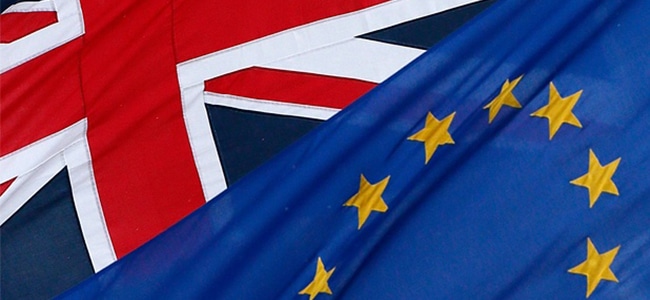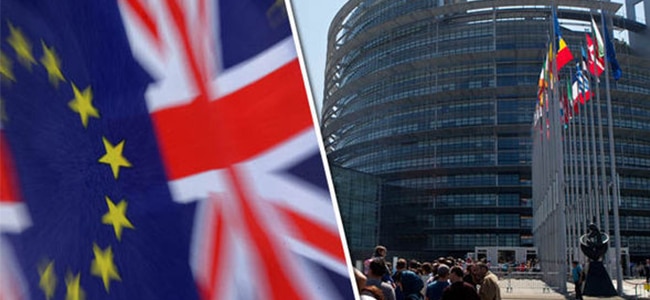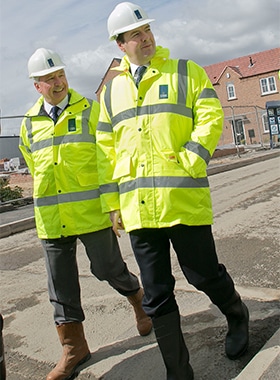If you’re looking for property within an easy commute of London, then consider areas close to the next high-speed rail route and you could make a tidy profit too.
Until fairly recently, it has been hard to get too excited about Crossrail 2 – the proposed high-speed rail route that got the green light in March. It will link south-west and north-east London, as well as stretching out as far as Hertfordshire and Surrey, but the preferred route has not been confirmed and it’s not due for completion until 2033. Not many of us have the vision – or the money – to think that far ahead when it comes to investing in property.
But Crossrail 1 – renamed the Elizabeth line – will be fully operational in less than three years and a whole host of research has come out illustrating how property prices have risen close to its stations. So investors who missed the boat the first time round will want to make sure they pick up a bargain in potential property hotspots along the Crossrail 2 route.
This could be attractive to buy-to- let investors wanting a property that will increase in value. But first-time buyers priced out of the London property market could also find opportunities along the route.
While some areas on Crossrail 2 are bound to perform better than others, it’s hard to see how investors – or home buyers – along the route won’t benefit from its impact.
Johnny Morris, research director at Countrywide estate agents, says: “Our research shows the average landlord holds a property for 17 years, which for someone buying today would take them to around the Crossrail 2 opening. So for those looking for a long-term investment, as many do, it’s definitely worth thinking about Crossrail 2 today.”
However, he adds that the new rail route should not be the main reason for investing in an area. “If you’re going to keep a property for 17 years, you need to make sure that you can rent it out successfully so that it has sufficient yield to cover your costs. There would be no point buying a home in an area with a very small rental market on the prospect of Crossrail 2 because that would just be bad maths.”
It’s more of a case that if you are already thinking of investing in an area – say, south-west London – and you have a choice between buying a property in Wandsworth or Wimbledon, the fact that the latter is on the Crossrail 2 route might influence your decision.
Lessons from the Elizabeth Line
To get an idea of how much property prices could rise along Crossrail 2, you only have to look at how the housing market has performed along the Elizabeth line – and it isn’t even open yet. According to figures published earlier this year by property portal Zoopla, average property prices along this route went up by 52% – that’s £182,727 – since building work began in 2009.
This put the average property along Crossrail 1 at £522,192 in February 2016, compared to the national average of £298,883 – a difference of 54% (see map below, click to enlarge).

A separate study by financial services firm JLL, analysing areas within a 750-metre radius of each Crossrail station and looking mainly at opportunities for new-build housing, shows that some Crossrail 1 locations are expected to see house price growth of 16% above the Greater London average by the end of 2020, with the biggest winners being Woolwich, Whitechapel, West Drayton and Ealing Broadway. It says that, on average, house prices around Crossrail stations will be 7% higher compared to non-Crossrail stations.
The importance of being close to transport links was highlighted in Knight Frank’s Tenant Survey 2015/16, which sought the views of 5,000 tenants. It found that 71% of Londoners think transport links are the most important factor when choosing a rental property.
According to Knight Frank research from 2015, homes within a 10-minute walk of stations on the Crossrail 1 route have outperformed those in the wider boroughs by an average of 5% since the initial Crossrail plans were granted Royal Assent.
James Barton, partner at Knight Frank City and East, sees no reason why the ‘Crossrail effect’ won’t have a similar impact on houses close to the new route. “Focusing specifically on Greater London, Crossrail 2 will open up areas where the delivery of new homes has traditionally been stunted due to lack of accessibility. In areas such as Waltham Cross,we expect Crossrail 2 to have a particularly positive impact on the property market,” he says.
Playing the waiting game
While it’s tempting to consider areas along Crossrail 2 for buy-to-let opportunities, JLL points out that for Crossrail 1 the majority rental growth will come about only when the route is up and running. While buy-to-let investors are likely to see their property close to Crossrail 2 stations increase in value, they will have a long wait before they enjoy increased rental yields.
Jamie Burnhope, consultant at buying agent Black Brick, agrees that investors need to focus on capital gains. “One of the quickest ways to see capital appreciation from property investment is to buy into an area which is set to benefit from improvements to transport infrastructure. We’ve seen it happen since the opening of the East London Line and we’ve seen it in London and beyond since the announcement of Crossrail 1 – and it’s not even operational yet,” he says
A tip for first-time buyers
Consider funding your property with the Help to Buy London scheme.
It is open to first-time buyers – and home movers – buying a new-build home worth up to £600,000 in any London borough. It means that you can borrow a government-backed equity loan of up to 40%, while you only need to put down a 5% deposit and will get a mortgage of up to 55% to fund the rest of the borrowing.
The loan has to be paid back in 25 years or when you sell the property if this is sooner.
The loan is interest-free for the first five years and then you have to pay 1.75% in year six. It then rises by the Retail Prices Index plus 1%.
Lenders who support the Help to Buy scheme are Aldermore, Bank of Scotland, Barclays, Halifax, Leeds, Lloyds, Nationwide, NatWest, Royal Bank of Scotland, Santander,Teachers and TSB.
If you are thinking of buying along the Crossrail 2 route, bear in mind that if you buy a property outside a London borough, you will only be eligible for a 20% government-backed equity loan.
Watch out for areas along the route that are spread across London and the Home Counties. For example, some properties in Worcester Park are in the London Borough of Sutton, while others are in Surrey.
“With [the planned route for] Crossrail 2 not having been confirmed yet, now is a
good time for the risk-taking investor to buy in early to an area that is likely to be on the line.”
Mr Morris says: “It’s a safe assumption that prices of homes near a Crossrail 2 station will see a bigger increase than the equivalent place not near a station. If you improve the transport links of an area – and make it easier to get to central London – prices will increase relative to the surrounding area. Equally, if prices were to go down, they would fall less in these areas.”
On a final note, it’s worth remembering that the current route is just a ‘preferred’ one and could change. In particular, no decision has been made about whether the route to New Southgate will go via Wood Green or Turnpike Lane and while Balham is the preferred mid-way stop between Clapham Junction and Wimbledon, there is still a possibility that Tooting Broadway could be chosen if construction methods being tested at Balham prove problematic.
Transport for London is planning another public consultation on Crossrail 2 towards the end of this year and no date has been set to consult on the final route.

Potential hotspots
Investors are likely to get more for their money in the outer reaches of the proposed route, where the line will connect with the existing national railway network towards Hertfordshire and Surrey, given that properties close to the central London transport hubs along Crossrail 2 have already seen huge price hikes.
Tottenham Court Road, for instance, which is also on the Elizabeth line, has seen house prices go up by 66% between May 2009 and February 2016, according to property portal Zoopla, with average property prices at an eye-watering £1.85 million.
Instead, it might be better to focus on housing on the northerly edge of the proposed route, running through Enfield Lock, Waltham Cross and Cheshunt to Broxbourne in Hertfordshire.
However, be warned: house prices in this region are already rising way above the national average, and that’s before the Crossrail 2 route has been officially confirmed.
While property prices in the UK went up by 8.2% over the year to April 2016, prices in Hertfordshire – which includes Waltham Cross and Broxbourne – went up by 15.5%,
with an average price of £371,493 according to the latest UK House Price Index (UK HPI).
In the district of Waltham Forest itself, house prices went up by a whopping 25% over the year, with the average price now standing at £424,663. In nearby Enfield, houses sold for 17.8% more than in April 2015, with the average property a slightly more affordable £379,174.
Heading south, UK HPI data shows that properties in Surrey went up, on average, by 11.9% in April, with houses selling for £427,981.
In Kingston upon Thames, house prices in April were up 12.6% on the previous year, with the average home selling for £484,213, while in Epsom and Ewell, house prices went up by 14.4% annually, averaging out at £454,840.









